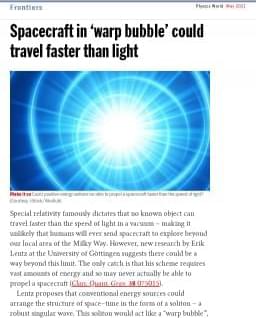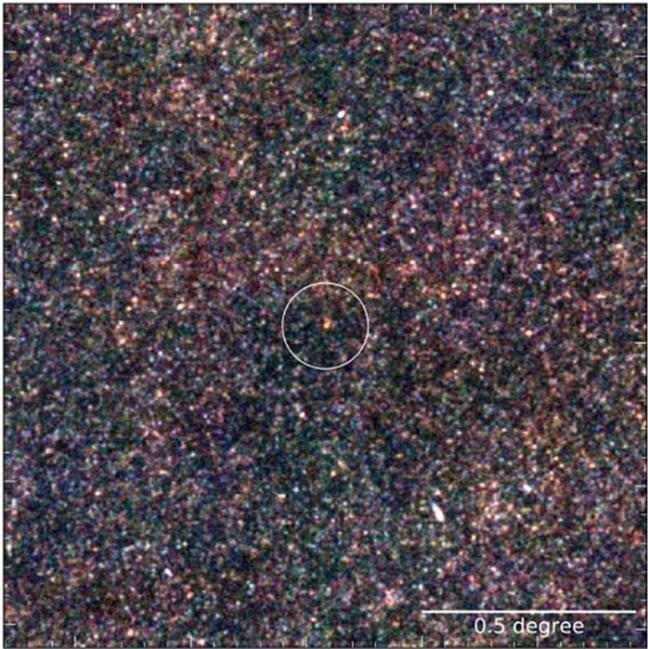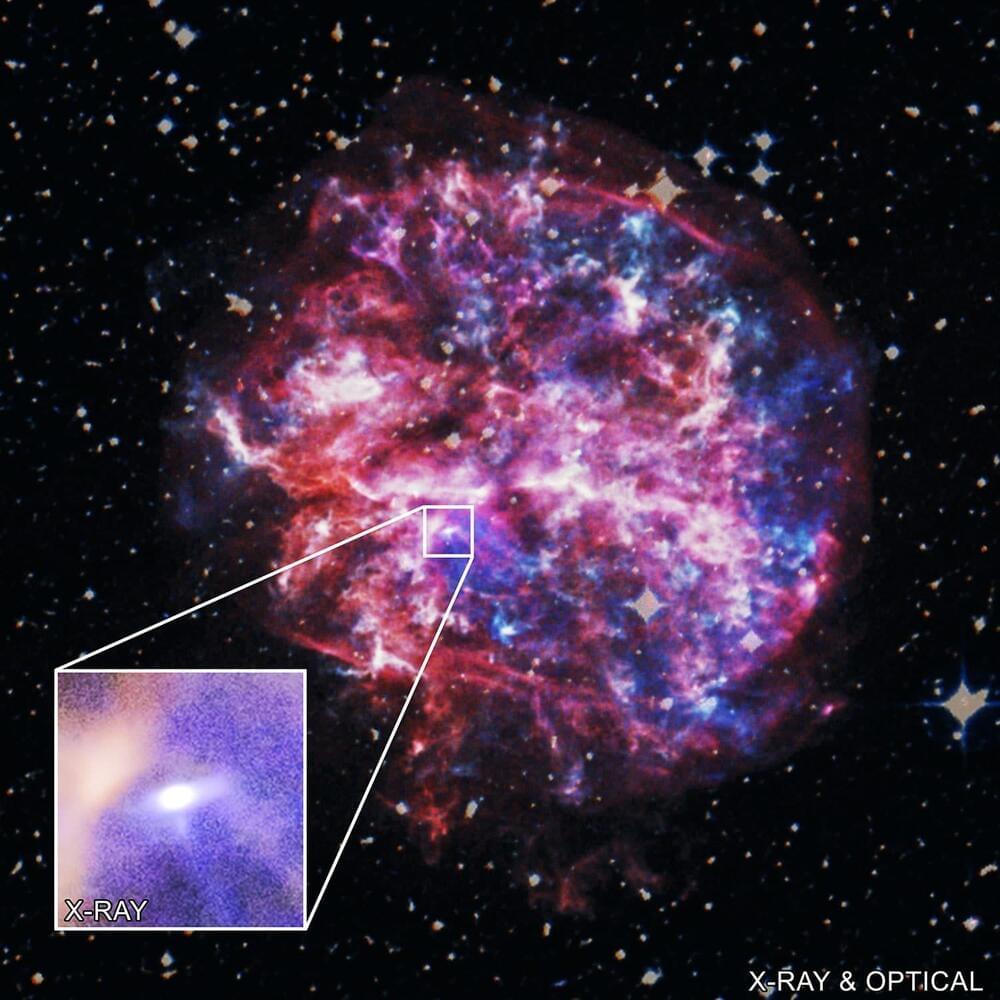Special relativity famously dictates that no known object can travel faster than the speed of light in a vacuum – making it unlikely that humans will ever send spacecraft to explore beyond our local area of the Milky Way. However, new research by Erik Lentz at the University of Göttingen suggests there could be a way beyond this limit. The only catch is that his scheme requires vast amounts of energy and so may never actually be able to propel a spacecraft (Class. Quant. Grav. 38 075015).
Lentz proposes that conventional energy sources could arrange the structure of space–time in the form of a soliton – a robust singular wave. This soliton would act like a “warp bubble’”, contracting space in front of it and expanding space behind. Unlike objects within it, space–time itself can bend, expand or warp at any speed. A spacecraft contained in a hyperfast bubble could therefore arrive at its destination faster than light would in normal space without breaking any physical laws.
It had been thought that the only way to produce a warp drive was by generating vast amounts of negative energy – perhaps by using some sort of undiscovered exotic matter or by manipulating dark energy. To get around this problem, Lentz constructed an unexplored geometric structure of space–time to derive a new family of solutions to Einstein’s general relativity equations called positive-energy solitons. Though Lentz’s solitons appear to conform to Einstein’s general theory of relativity and remove the need to create negative energy, space agencies will not be building warp drives any time soon, if ever. Part of the reason is that Lentz’s positive-energy warp drive requires a huge amount of energy. According to Lentz, a 100 m radius spacecraft would require the energy equivalent to “hundreds of times the mass of Jupiter”.




